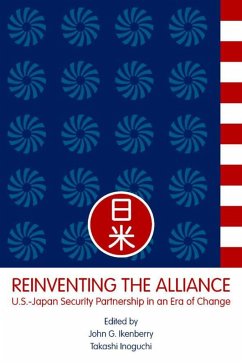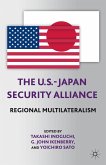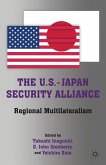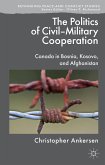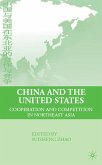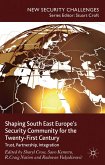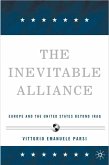This is an edited volume that examines the US-Japan security alliance, the key to US-Japanese relations since the end of US occupation in the 50s. The alliance has long been a source of both co-operation and stress between the two nations, but with rapid changes in Asia, it has grown more problematic. This book brings American and Japanese specialists together to examine the alliance within the wider regional environment and to determine whether and how the bilateral alliance can evolve and remain at the core of the region's security order.
The fifty-year old U.S.-Japan alliance demands serious reexamination. The end of the Cold War, the rapid expansion of China and the outbreak of Islamist terror networks have undercut key security premises on which the alliance was forged. Yet these changes make a healthy U.Ss-Japan relationship even more critical to regional stability than before. Ikenberry and Inoguchi lead an impressive array of experts in an ambitious effort to diagnose the alliance in its bilateral and multilateral contexts. The book offers a rich and textured analysis of the present day alliance and an invigorating new mapping of potential fruitful directions. - T.J. Pempel, Director, Institute of East Asian Studies, University of California, Berkeley
This book reassesses the fifty-year old U.S.-Japan alliance and explores the ways in which this security system could be effective for the next fifty years. In the search for a viable redefinition of the U.S.-Japan alliance in the future, the authors study different models of regional security, and propose that the "U.S.-German relationship model" is a better model for the U.S.-Japan security partnership than the "U.S.-British partnership model," recommended in the Armitage Report (fall 2000). Altogether, this work provides valuable insight for redefining the role of the U.S.-Japan alliance in Asia in the twenty-first century. - Mayumi Itoh, University of Nevada, Las Vegas
The contributors in this volume are well-chosen. Ikenberry and Inoguchi skillfully introduce the reader to the themes of the book. Well-organized scholarship flows deftly to guide both the non-specialist as well as the specialist reader through the wealth of expert information presented on this complex topic.
- Robert Angel, Associate Professor, Department of Political Science, University of Southern California, and author of Explaining Economic Policy Failure: Japan and the 1969-1971 International Monetary Crisis
This book reassesses the fifty-year old U.S.-Japan alliance and explores the ways in which this security system could be effective for the next fifty years. In the search for a viable redefinition of the U.S.-Japan alliance in the future, the authors study different models of regional security, and propose that the "U.S.-German relationship model" is a better model for the U.S.-Japan security partnership than the "U.S.-British partnership model," recommended in the Armitage Report (fall 2000). Altogether, this work provides valuable insight for redefining the role of the U.S.-Japan alliance in Asia in the twenty-first century. - Mayumi Itoh, University of Nevada, Las Vegas
The contributors in this volume are well-chosen. Ikenberry and Inoguchi skillfully introduce the reader to the themes of the book. Well-organized scholarship flows deftly to guide both the non-specialist as well as the specialist reader through the wealth of expert information presented on this complex topic.
- Robert Angel, Associate Professor, Department of Political Science, University of Southern California, and author of Explaining Economic Policy Failure: Japan and the 1969-1971 International Monetary Crisis

